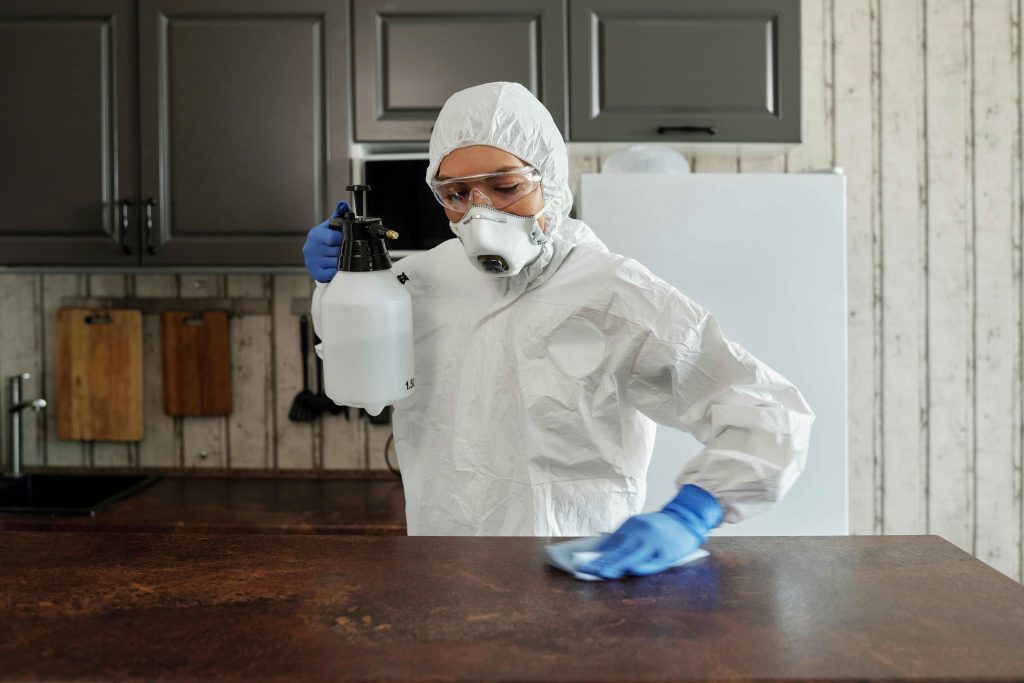
When a natural disaster strikes, people often find themselves in need of emergency sanitation. After hurricanes, tornados, earthquakes, and other disasters, toilets may not function, the water supply may be tainted, and individuals may be stuck in locations where access to sanitation is impossible. That’s why it’s essential to keep yourself prepared, safe, and clean in emergency situations. Maintaining clean drinking water and adequate sewage disposal after a disaster is important.
In this post, we’ll discuss essential tips for emergency sanitation and important advice on keeping safe, from personal hygiene to hiring professional cleaning services.
Why Is Emergency Sanitation Important
Proper emergency sanitation is essential for protecting public health, preserving the environment, and promoting social stability during calamities. Implementing effective sanitation measures is a critical component of disaster preparedness and response efforts. Your property and personal hygiene are just as important as taking care of your body. Cleaning and disinfecting your home and workplace can maintain your health and your family.
- Disease Prevention — During emergencies such as natural disasters, sanitation systems may be disrupted, leading to contamination of water sources and the environment with human waste. This contamination can result in the spread of diseases such as cholera, typhoid, dysentery, and hepatitis A. Proper sanitation helps prevent the transmission of these diseases by ensuring safe disposal of human waste and maintaining clean water sources.
- Public Health — Inadequate sanitation facilities can lead to poor hygiene practices, which in turn can contribute to the spread of infectious diseases. Proper sanitation facilities, including toilets, handwashing stations, and waste disposal systems, promote good hygiene practices and help protect public health.
- Health and Well-being — Access to safe and hygienic sanitation facilities is essential for maintaining human health and well-being, especially during times of crisis. Adequate sanitation facilities provide privacy and safety, particularly for vulnerable populations such as women, children, the elderly, and people with disabilities.
- Environmental Protection — Improper disposal of human waste can pollute the environment, contaminate soil and water sources, and harm ecosystems. Proper emergency sanitation measures, including the safe disposal and treatment of waste, help minimize environmental degradation and protect natural resources.
- Reducing Secondary Risks — Inadequate sanitation can lead to secondary risks such as insect vectors (e.g., flies, mosquitoes) breeding in contaminated areas, which can further exacerbate health problems and spread diseases. Proper emergency sanitation helps mitigate these secondary risks and supports overall disaster response efforts.
8 Tips for Emergency Sanitation
These essential tips for emergency sanitation help communities mitigate health risks, protect the environment, and maintain hygiene standards during crises. Regular monitoring and maintenance of sanitation facilities are also critical to ensure continued effectiveness and prevent the spread of disease.
Practice Proper Waste Disposal
Promote the safe disposal of human waste to prevent contamination of the environment and water sources. Encourage the use of designated latrines or toilets and provide supplies such as toilet paper, hand sanitizer, and cleaning materials. In areas without access to toilets, use trenches or pits for waste disposal, ensuring they are covered regularly and located at a safe distance from water sources.
Promote Hygiene Practices
Emphasize the importance of handwashing with soap and clean water, especially after using the toilet and before handling food. Establish handwashing stations equipped with soap and water or provide alcohol-based hand sanitizers where water is scarce. Educate communities on proper hygiene practices to prevent the spread of diseases.
Manage Solid Waste
Implement measures to manage solid waste effectively, including collecting and disposing of garbage to prevent it from accumulating and attracting pests. Encourage the separation of waste into recyclables and non-recyclables where possible, and promote the composting of organic waste to reduce environmental impact.
Ensure Safe Water Supply
Ensure access to safe drinking water by providing clean water sources or treating available water sources to make them safe for consumption. Promote the use of water purification methods such as boiling, chlorination, or filtration to remove contaminants and prevent waterborne diseases.
Ensure Adequate Ventilation
Proper ventilation is essential in sanitation facilities to minimize odors, promote airflow, and reduce the spread of airborne pathogens. Install ventilation systems or ensure that latrines have adequate ventilation openings to maintain air quality and improve user comfort.
Implement Vector Control Measures
Implement vector control measures to prevent the breeding of disease-carrying insects such as flies and mosquitoes. Cover latrine pits or trenches when not in use, use fly screens on latrine openings, and eliminate standing water where mosquitoes breed. Additionally, promote the use of insect repellents and mosquito nets to reduce the risk of vector-borne diseases.
Establish Emergency Sanitation Kits
Assemble emergency sanitation kits for quick deployment in crisis situations. These kits should include essential items such as portable toilets or sanitation bags, hand sanitizer, disinfectant wipes, garbage bags, and gloves. Customize the kits based on the size of the group and the anticipated duration of the emergency.
Consider Professional Cleaning Services
In situations where the scale of the emergency overwhelms local resources or expertise, consider hiring professional cleaning services. These professionals are trained to handle hazardous materials, disinfect contaminated areas, and restore sanitation infrastructure efficiently. Ensure the hired service providers adhere to safety protocols and regulations.

FAQs
How can I ensure safe drinking water during an emergency?
To ensure safe drinking water during an emergency, you can purify water using methods such as boiling, chemical treatment, or filtration. It’s essential to follow recommended guidelines for water purification and storage to prevent waterborne illnesses. Additionally, alternative water sources should be identified, and emergency water distribution points should be established if necessary.
What should I do with human waste when regular sanitation services are unavailable?
When regular sanitation services are unavailable, temporary solutions such as portable toilets, latrines, or sanitation bags can be used. Designate appropriate locations for waste disposal, ensuring they are away from water sources and living areas. Encourage proper waste management practices to minimize environmental contamination and health risks.
How can I maintain personal hygiene during an emergency?
To maintain personal hygiene during an emergency, practice regular handwashing with soap and water or use alcohol-based hand sanitizer if water is scarce. Use clean water and sanitation facilities for bathing and toileting whenever possible. Stockpile hygiene products such as soap, toothpaste, and sanitary supplies, and maintain cleanliness in living spaces.
What role do sanitation professionals play in emergency response?
Sanitation professionals play a vital role in emergency response by providing expertise in waste management, sanitation infrastructure, and hygiene promotion. They may be involved in setting up temporary sanitation facilities, disinfecting contaminated areas, and educating communities on proper sanitation practices. Their knowledge and skills help mitigate health risks and restore sanitation services in crisis-affected areas.
Conclusion
If your Zephyrhills, FL, property needs expert assistance with mold removal, water and fire damage services, or other restoration needs, you can trust our team to help. PuroClean Zephyrhills provides professional emergency sanitation services to enhance your quality of life. To learn more about our services, contact us today.




 PuroClean Certified Restoration Specialists
PuroClean Certified Restoration Specialists